Who has the most influence over Brexit in the UK?
From Theresa May to Jeremy Corbyn, IBTimes UK lists the most important politicians.
She is still the top dog of British politics, but Theresa May's credibility took a considerable blow at the general election. The Conservative premier called the 8 June vote to bolster her pro-Brexit position. With the Tories up to 24 points ahead of Labour in the opinion polls, it looked like a sensible move.
But the party's manifesto, including a so called "dementia tax" and other unpalatable policies, helped May lose her majority in the House of Commons.
Conservative MPs, known for their ruthlessness when it comes to axeing leaders (just ask admirers of Margaret Thatcher), have decided to unite behind May.
If anything else, they do not want another messy leadership election and fear Jeremy Corbyn could be catapulted into Number 10 if another snap election is held.
May's decision to stay in Downing Street has come at a cost. Nick Timothy and Fiona Hill, the prime minister's closest advisers and co-chiefs-of-staff, were forced to quit Number 10 and the wounded prime minister will have to consult more widely than ever before.
Crucially, however, May has not shifted her stance on Brexit. The government still plans to split from the EU's single market, crack down on immigration, and seek a bespoke customs deal with Brussels so that Britain can broker its own free trade arrangements with non-EU nations.
Damian Green
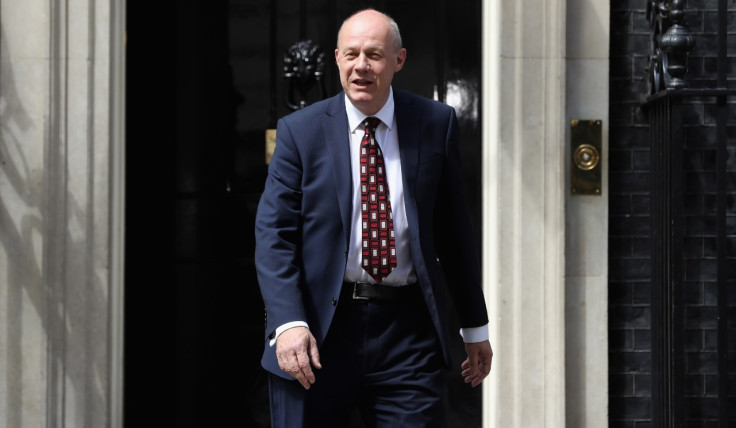
Green, an Oxford University friend of May's, has seen a steady rise through the Conservative power ranks over his political career.
A mere police minister under David Cameron, the 61-year-old was promoted to Work and Pensions Secretary after May's coronation last July.
The prime minister promoted Green again after the election to first secretary of state, the same top post former Chancellor George Osborne held under Cameron. But the appointment is not without controversy since both May and Green, now her number two, both unsuccessfully campaigned for Remain ahead of the EU referendum.
Gavin Barwell
The former housing minister may have lost Croydon Central at the election, but Barwell was quickly back at the top table after May hired him as her chief-of-staff following Timothy's and Hill's resignations. The 45-year-old father of three, like May and Green, backed a Remain vote. However, Barwell told IBTimes UK that Brexit and who would lead the UK into the two-year-long talks was the "fundamental issue" of the general election.
Philip Hammond
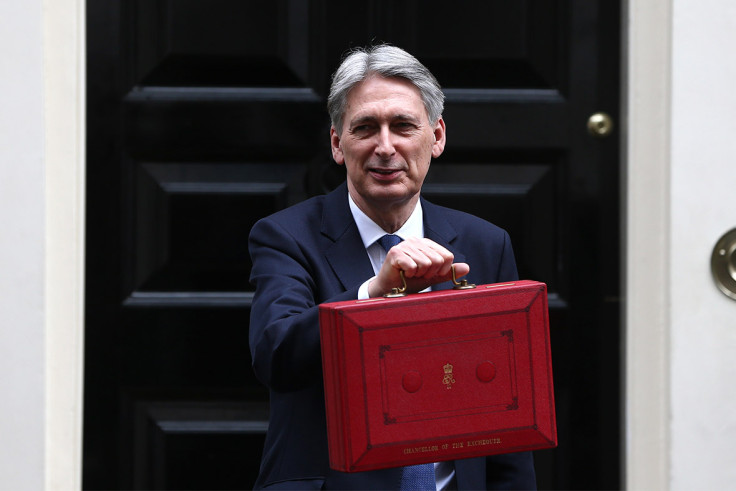
Hammond, 61, was reportedly facing the sack after the election.
His plan to hike National Insurance Contributions (NICs) for millions of self-employed workers went down like a cup of sick, with The Sun leading the fightback for the so-called "White Van Men" of Britain.
As the press continued to point out that the Conservative manifesto promised no hikes in VAT, income tax, or NICs, Hammond was forced into an embarrassing U-turn. His credibility shot, Hammond was expected to be replaced by one of May's allies.
But with the prime minister's snap election plan backfiring, she was forced to keep Hammond in Number 11. Another Remain campaigner, Hammond has apparently resisted some of the cabinet's so-called "hard Brexit" plans. He recently publicly disagreed with Brexit Secretary David Davis over the timeline for a post-Brexit transitional period for the UK.
Hammond has suggested the period could last up to four years, whilst Davis expects to split from the EU's single market and customs union in 2019.
Boris Johnson
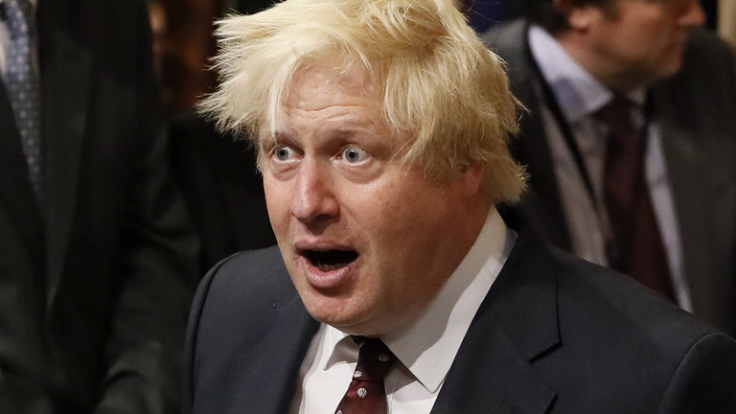
Johnson, the chief cheerleader of the Vote Leave campaign, is another cabinet survivor thanks to the election.
Ben Gummer, the Conservative manifesto architect, was reportedly going to replace him as foreign secretary after the vote. But the plan, to put it mildly, went pear-shaped when Gummer lost his Ipswich seat to Labour.
May was forced to keep Johnson, whose leadership aspirations are well-known, in office.
Yet the rumours persist of a future leadership bid from the Bullingdon Club old boy and former Mayor of London. Johnson has even sent a WhatsApp message to his supporters within the Conservative parliamentary party urging them to "keep calm" and get behind May.
Liam Fox
Fox, 55, was sidelined during the EU referendum campaign. The Brexit-backer, snubbed by the official Vote Leave campaign, ended up joining Peter Bone's Grassroots Out group.
The move saw the former defence secretary make a surprise appearance alongside Ukip's Nigel Farage at a 2,000-strong rally in Kettering, East Midlands. May then shocked Westminster by bringing Fox back into government as her international trade secretary after the Leave vote.
Fox's job depends on the UK splitting from the EU's customs union so the government can broker free trade agreements with non-EU nations without interference from Brussels.
Arlene Foster
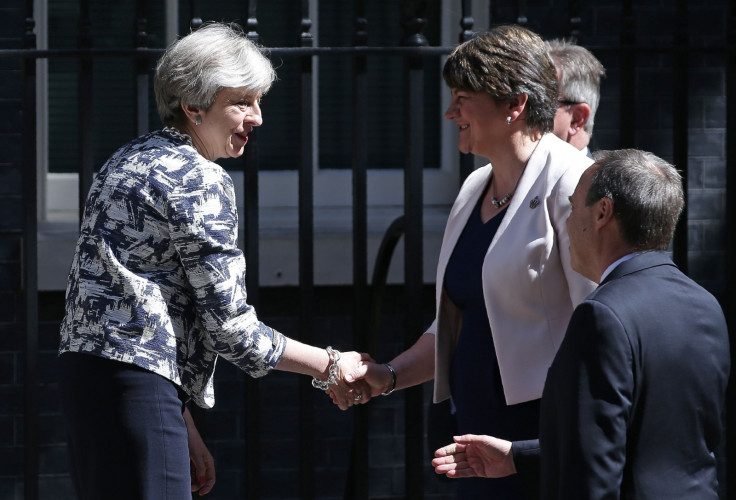
The leader of Northern Ireland's Democratic Unionist Party (DUP), a post she inherited from Peter Robinson in December 2015, Foster has become a household name in the rest of the UK thanks to her "confidence and supply" deal with the Conservatives.
Foster, who was facing a serious public backlash over a botched energy scheme – the Renewable Heat Incentive (RHI) – which could cost taxpayers £400m, has been able to secure £1bn for the province.
With her 10 pro-Brexit DUP MPs keeping May in power, Foster has considerable influence over the direction of the UK's split from the EU.
The House of Lords
Under the Salisbury Convention, the upper chamber of the Houses of Parliament is limited in its ability block draft legislation from the House of Commons. The lords typically have a revising role to make the government "think again". But amid a hung parliament, with Labour and Liberal Democrat peers outranking their Conservative colleagues (304 to 254, respectively), the Lords could play a pivotal role in passing or scuppering the government's Brexit-related bills.
Jeremy Corbyn
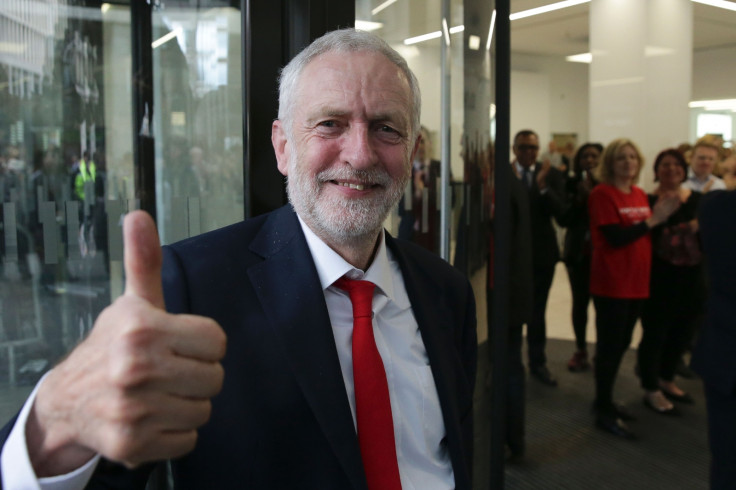
In 2015, Westminster watchers did not expect the left-winger to succeed Ed Miliband and become Labour leader.
In 2016, Corbyn faced a no confidence vote from Labour MPs and a challenge from Owen Smith. In 2017, he was expected to lead Labour to defeat, with some pundits predicting that Labour's parliamentary party would be reduced to 1935 election levels of just 102 MPs.
Instead, Corbyn was able to increase Labour's share of the popular vote to 40% and win 30 extra seats.
A lifelong eurosceptic, before he reluctantly campaigned for Remain at the EU referendum, Corbyn has backed the UK's split from the EU. The leader of the opposition, who supports a "jobs-first" Brexit, even sacked three of his shadow ministers for voting in favour of staying in the EU's single market and customs in June.
With Labour unity at a record high under Corbyn and the party enjoying a post-election poll lead over the Tories,he is expected to stay in the post until the next election in 2022.
Sir Keir Starmer
A former director of public prosecutions and the head of the Crown Prosecution Service (CPS), Starmer, 54, has one of the top legal minds in the UK. He has used those high-level analytical skills to continuously challenge the government over its Brexit plans. After first joining Corbyn's top team in October 2016, Starmer's media and political profile has grown.
Nicola Sturgeon
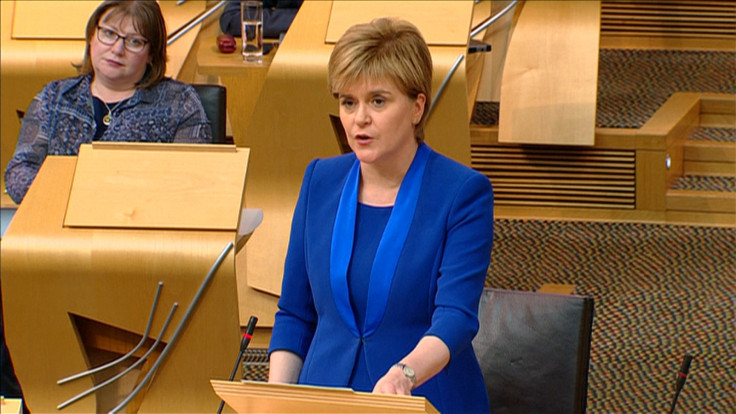
The first minister of Scotland and SNP leader has been a constant pro-EU thorn in May's side.
The centre-left politician has continually pointed out that Scotland voted 62% to 38% to stay in the economic and trading bloc, while calling for a second independence referendum on the back of the Brexit vote.
But her plans for another plebiscite, just two years after Scots rejected breaking away from the rest of the UK in 2014, were scampered when the SNP lost 21 seats at the election.
The party's Westminster chief Angus Robertson and former leader Alex Salmond were among those kicked out of the Commons. Sturgeon has "reset" her referendum ambitions in response to the vote, with a plan not to table a bill in the Scottish Parliament until at least autumn 2018.
Carwyn Jones
The first minister of Wales and Welsh Labour leader since December 2009, Jones has access to both Corbyn and the government over the Brexit talks. He has reportedly claimed that the split from the EU gives the UK an opportunity to "reinvent and strengthen" itself, but he campaigned for Remain and expressed "deep disappointment" in the immediate aftermath of the Brexit vote last June.
Ruth Davidson
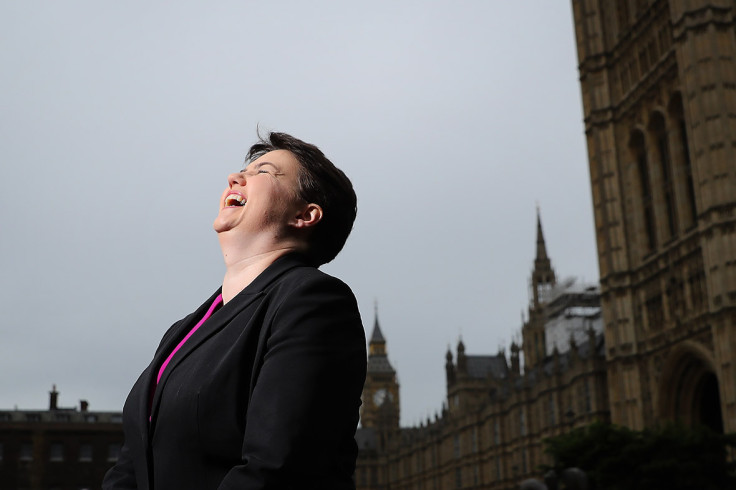
The Scottish Conservative leader is arguably one of the most popular Tories in the UK. Davidson, a former BBC journalist who sits on the liberal wing of her party, helped secure 13 seats for her party north of the border at the election.
The striking result, the party's best performance in Scotland since 1983, meant the Conservatives were able to cling on to power.
Davidson, a prominent Remain campaigner, has used her power boost to urge May to "rethink" her Brexit plan. The Scottish Tory leader, who is gay, also received "LGBT assurances" from the prime minister over the government's deal with the socially conservative DUP.
Ian Blackford
Blackford, 56, has the unenviable task of trying to fill Robertson's shoes as the leader of the SNP's Westminster group. Robertson made a name for himself during Prime Minister's Questions, where he would use his two questions during the weekly session to skewer May on the issue of the day. The SNP may now only have 35 MPs in the Commons, but they can hurt the government by teaming up with Labour and the Liberal Democrats in the voting lobbies.
Nigel Dodds
Dodds is tasked with keeping the DUP's 10 MPs in the Commons in check, a role he has had since 2010 when he took over from Ian Paisley. The former barrister and father-of-two enjoys much greater influence over Brexit than before the election thanks to DUP/Conservative "confidence and supply arrangement".
A staunch unionist, Dodds will attempt to make sure that Corbyn's whips do not outsmart the government over the course of the new parliament. If stopping the Labour leader, who has a pro-republican past, from entering Number 10 is not enough motivation, the Tories have promised Northern Ireland £1bn as part of the deal.
Hilary Benn
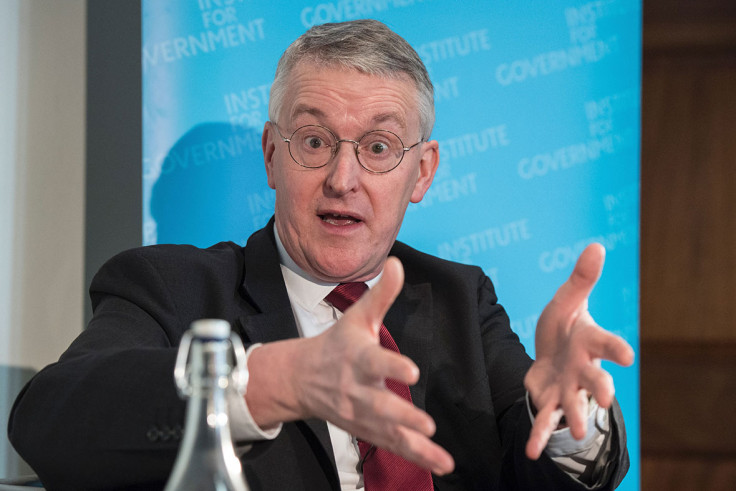
Benn, the 63-year-old son of Tony Benn, chairs the powerful cross-party Brexit Select Committee.
A Remain campaigner, he was sacked as shadow foreign secretary by Corbyn for telling the Labour leader that he had no confidence in him in the wake of the EU referendum result.
The row eventually resulted in the 2016 Labour leadership contest, with Corbyn fending off Smith and boosting the party at the general election. Benn's influence within Labour may have fallen, but his group of MPs will be scrutinising the government throughout the Brexit process.
Yvette Cooper
Cooper, 48, was reportedly plotting a leadership bid for after the election. But with Corbyn increasing the number of Labour MPs and staying put, Cooper has not made any maneuvers. As head of the Home Affairs Select Committee, which probes the government over immigration and other policy areas, Cooper has a fair amount of influence over the Brexit talks.
Suella Fernandes
At just 37, Fernandes, a former lawyer, is the Brexit influencer you probably have never heard of. She has succeeded Steve Baker, the new Brexit minister, as chair of the pro-Leave European Research Group of around 60 backbench Conservative MPs. The Brexiteers apparently plot on WhatsApp in bid to keep May true to her "Brexit means Brexit" slogan.
Angus MacNeil
Having being first elected to parliament in 2005, MacNeil, 46, is one of the more familiar SNP faces in the Commons. As the chair of the International Trade Committee, he will hold the government's feet to the fire alongside Cooper and Benn.
Graham Brady
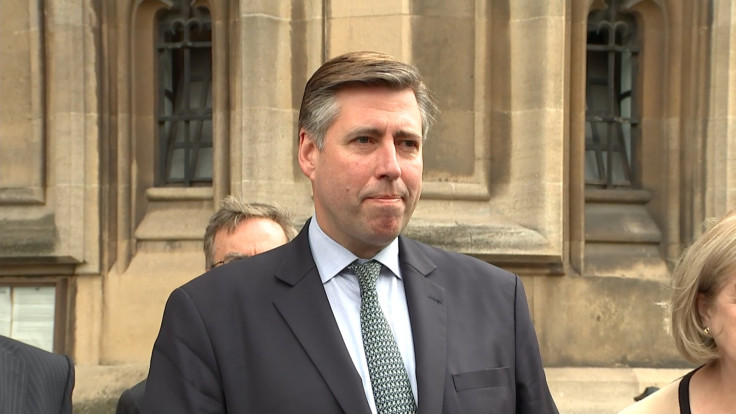
With a hung parliament, Conservative backbenchers have more influence than ever over May.
It is no surprise that she consulted Graham Brady and his 1922 Committee of backbench Tory MPs.
The group, which has been chaired by Brady since 2010, holds weekly meetings in the Commons to discuss Westminster business and take the parliamentary party's temperature. The '22 have the ability to depose May with a vote of no confidence.
© Copyright IBTimes 2024. All rights reserved.






